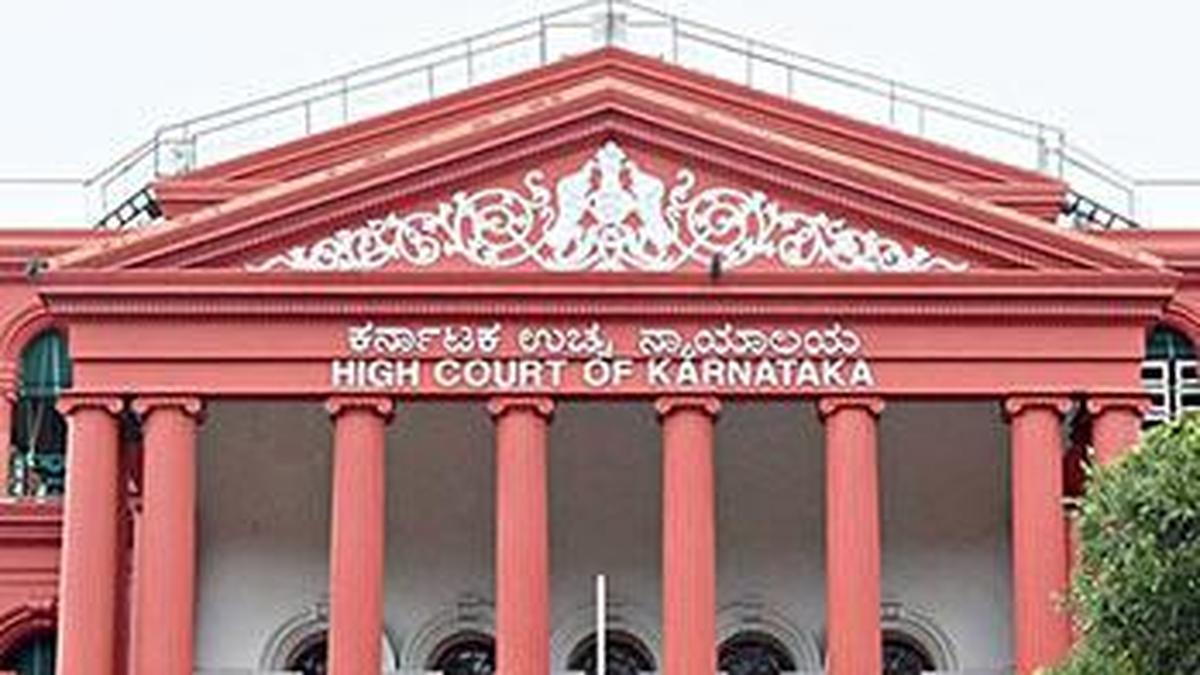The Karnataka High Court has expressed serious disapproval over the state government’s decision to withdraw the appointment of an advocate within just 24 hours, terming it “unjust and arbitrary.” The bench, hearing a public interest petition, criticised the authorities for undermining the principles of fairness, transparency, and procedural propriety. The case involved the sudden revocation of an appointment letter issued to a qualified advocate, who had been selected through a competitive process conducted by the Karnataka State Legal Services Authority. The court’s observations highlight a growing concern over administrative overreach in matters of employment, especially for positions governed by established legal norms.
The advocate, whose appointment was rescinded, had reportedly cleared all required interviews and submitted necessary documentation, only to be informed the next day that the selection had been cancelled without prior notice or explanation. Petitioners argued that the action demonstrated a lack of institutional checks, procedural lapses, and arbitrariness in government decision-making. They highlighted the psychological and financial impact on the affected individual, who had already begun preparing for duties, relocating, and incurring personal expenses in reliance on the government’s offer.
The court noted that while governments have the authority to review appointments, such decisions must be guided by clear rules, adequate reasoning, and adherence to principles of natural justice. Sudden reversals without explanation, the judges emphasised, undermine confidence in the administration and compromise the credibility of public recruitment processes. Legal experts observing the hearing commented that this judgment could set an important precedent, reinforcing the need for fair administrative conduct and respect for candidates’ rights in government appointments.
Procedural Fairness and Natural Justice Under Scrutiny
During the hearing, the High Court highlighted the importance of procedural fairness in appointments, especially in legal and quasi-judicial roles. The bench remarked that even a government’s internal review must be communicated transparently, and affected individuals must be given an opportunity to respond. Arbitrary actions, the court observed, not only harm the specific candidate but also erode public trust in the integrity of the recruitment system. It further stressed that such lapses could dissuade talented professionals from seeking positions in government service, ultimately weakening institutional efficiency.

Petitioners argued that the abrupt cancellation violated not only statutory provisions but also constitutional principles guaranteeing equality and protection of legitimate expectations. The court examined whether due process had been followed, including the issuance of proper notice, verification of credentials, and adherence to prescribed procedures. It found that the state had acted in haste, without documented justification or consultation with concerned authorities, leaving the decision open to legal and ethical challenge.
The government’s legal team defended the action by citing alleged procedural irregularities in the candidate’s submission. However, the High Court questioned the timing and method of the revocation, noting that any such irregularities should have been addressed through formal communication rather than instant withdrawal. The bench observed that the candidate had not been given any chance to clarify, respond, or remedy perceived discrepancies, violating principles of natural justice. The court categorically stated that administrative discretion does not allow for arbitrary action that disregards fairness and transparency.
The judgment underscored that legitimacy in public appointments rests on adherence to clear rules, procedural checks, and reasoned decision-making. It warned that failure to comply with these principles could open the government to repeated legal challenges and damage the credibility of public institutions. Legal commentators noted that the High Court’s observations might have wider implications, prompting a review of appointment processes in other departments to ensure compliance with fair practice norms.
Impact on Governance and Legal Appointments
The abrupt withdrawal has sparked debate over the treatment of candidates in sensitive appointments, particularly those involving legal or quasi-judicial roles. Many experts argue that such positions require not only professional competence but also confidence in institutional integrity. Sudden reversals, the High Court remarked, compromise both the individual’s career prospects and the public perception of governmental accountability. Legal professionals expressed concern that repeated occurrences of this nature could deter talent from pursuing public service careers, creating long-term challenges for state institutions.
The bench also highlighted that the state must balance administrative control with the rights of individuals. While governments have the responsibility to ensure that appointments are valid and proper, this must not come at the cost of fairness. Sudden actions that disregard due process, the court stated, amount to an infringement of the candidate’s legitimate expectations, causing harm not only to the individual but also to the broader reputation of the recruitment system. Several former public service officials agreed that transparency and notice are fundamental pillars of institutional trust.
Petitioners argued that the withdrawal set a dangerous precedent where arbitrary administrative decisions could override merit-based recruitment. They suggested that the government issue clear guidelines to prevent recurrence of such incidents. The High Court endorsed this perspective, recommending that any revocation of appointments must follow a formal, transparent process with adequate notice and a reasoned explanation. The judgment effectively cautioned authorities against treating appointments as reversible decisions subject to ad hoc whims.

The case also attracted attention among law students, advocates, and civil service aspirants, who viewed it as a reminder of the importance of procedural fairness in public appointments. Academics commented that the judgment reinforces constitutional values such as equality, protection of legitimate expectations, and fairness in administrative action. Several legal forums noted that the ruling might encourage other candidates to challenge arbitrary administrative actions, promoting accountability across various government departments.
Government Response and Future Implications
Following the court’s remarks, government officials reportedly assured the bench that they would review the recruitment procedure and take corrective measures. The administration clarified that the cancellation was not intended to target the individual but was the result of perceived administrative lapses. The High Court, however, insisted that perception alone cannot justify abrupt cancellation without following due process. Officials have since been instructed to revisit internal procedures and establish safeguards to prevent recurrence.
Observers suggest that this case could influence policies related to recruitment in other sectors, including education, healthcare, and law enforcement, where timely appointments are crucial. Governments across departments may be prompted to standardise communication protocols, ensure adequate notice periods, and implement clear guidelines for candidate interaction. Legal analysts predict that adherence to procedural fairness will be scrutinised more closely in future public appointments, reducing the scope for arbitrary decisions.
The ruling also carries implications for the broader administrative culture in Karnataka. By highlighting the need for fairness, transparency, and documentation, the High Court has effectively sent a message that bureaucratic discretion must be exercised responsibly. Officials may now prioritise structured review processes and detailed record-keeping before taking decisions that directly impact individuals’ careers. Experts noted that such systemic changes could strengthen institutional credibility and public confidence in the state administration.
Additionally, the judgment is expected to reinforce candidates’ rights to seek redressal against sudden or arbitrary administrative actions. Legal practitioners say that the precedent could empower aspirants to challenge similar decisions in other government departments, promoting a culture of accountability. By asserting the importance of natural justice, the High Court has effectively reminded authorities that administrative convenience cannot outweigh principles of fairness and equality.
Public reactions to the judgment have been largely supportive of the court’s stance. Advocacy groups, legal associations, and professional bodies praised the ruling for reinforcing the need for responsible governance. Many called for comprehensive training for administrative officers on procedural fairness and ethical decision-making. Commentators suggested that the case serves as a cautionary tale against rushed or opaque actions that can undermine trust in government institutions.
Finally, legal experts emphasised that the ruling could have ripple effects on appointments across India, particularly in cases where temporary or contractual positions are abruptly cancelled. They argued that governments should adopt robust procedural safeguards, provide notice, and document reasons for withdrawal of offers. The High Court’s remarks were viewed as a critical affirmation that administrative discretion must always be balanced with fairness, transparency, and the candidate’s legitimate expectations.

In conclusion, the Karnataka High Court’s censure of the state government’s hasty action highlights a crucial intersection of law, governance, and administrative ethics. By emphasising the principles of natural justice, procedural fairness, and transparency, the judgment reinforces the importance of structured decision-making in public appointments. Moving forward, the state administration is expected to implement corrective measures, ensuring that merit-based recruitment is protected from arbitrary interference and that candidates’ rights are safeguarded. The ruling stands as a reminder that responsible governance requires patience, clarity, and fairness, and that abrupt, unexplained decisions will no longer be tolerated in the state’s administrative framework.
Follow: Karnataka Government
Also read: Home | Channel 6 Network – Latest News, Breaking Updates: Politics, Business, Tech & More

